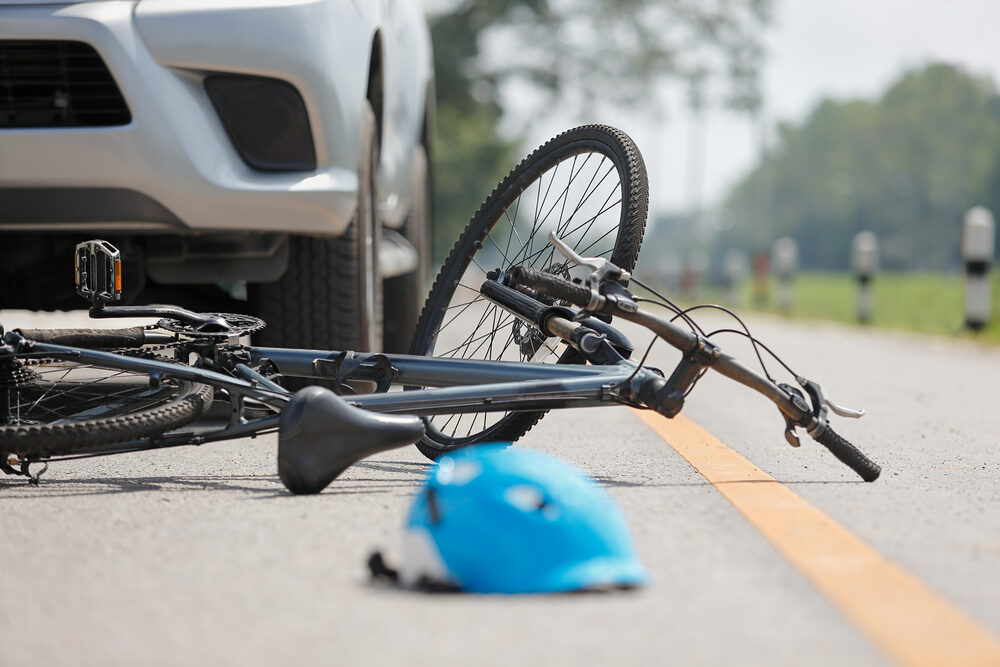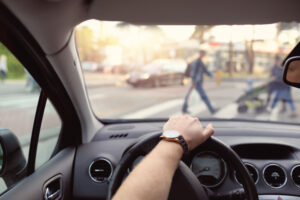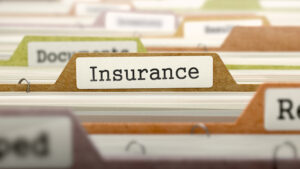
With spring approaching, more Virginians are pulling bikes out of their garages for recreation, commuting, and exercise. Unfortunately, not all bicyclists who hit the roads will stay out of harm’s way and could be involved in a Virginia biking accident.
In May of 2023, there were more than 160 bicycle-related crashes reported in Virginia. Many of those bicyclists required urgent medical care and 15 cyclists died on Virginia roadways. According to the National Highway Traffic Safety Administration’s annual report, released in June of 2023, the U.S. saw an increase in fatalities involving bicyclists in 2021 from previous years.
To prevent dangerous biking accidents, people should learn safe bicycling tips and the rules of the road for Virginia cyclists. Cyclists are required to follow some of the same Virginia traffic laws as drivers in vehicles.
Here’s a top ten list of bike safety tips to help guide those getting ready to hit the roads.
1. Prepare by learning the rules: Bicyclists need to know and follow the rules of the road, and since Virginia bicyclists have the same rights and responsibilities as drivers of vehicles, they need to know the state traffic laws. The Virginia Department of Transportation has provided a summary of the official Virginia rules that apply to the operation of bicycles in the state.
2. Bike Helmets save lives: Although Virginia does not have a state law that dictates all cyclists wear helmets, it is still recommended that everyone wear the proper, protective headgear while riding a bike. State lawmakers did create Virginia Code 46.2-906.1 to enable specific localities to pass ordinances requiring the use of helmets by children fourteen and younger. Those riding class 3 electric power-assisted bicycles also must wear a helmet in Virginia.
Riders should ensure that the helmet they choose for riding has a proper fit. It should sit level on the person’s head and low on the forehead about one or two finger widths above the eyebrows.
Statistics show helmets minimize the risks of traumatic brain injuries and death from bicycle crashes, and according to the National Safety Council, wearing a helmet reduces the risk of head injury by more than 50 percent.
3. Equipment matters: Virginia has laws concerning bicycle equipment requirements. Bicyclists must follow regulations regarding equipment, according to Virginia Code 46.2-1015, and Virginia Code 46.2-1066, including:
•Every bicycle ridden between sunset and sunrise must have at least one white headlamp with the light being visible at least 500 feet to the front.
•The bicycle must have a red reflector on the rear visible at least 600 feet to the rear.
•On roads posted with a speed limit of 35 mph or greater, the bicyclist must additionally be equipped with at least one red tail light visible from 500 feet to the rear. Taillights may be steady or blinking, are allowed under all conditions, and may be attached to the cycle or rider.
•Bicycles ridden on highways must have brakes that will skid the wheels on dry, level, clean pavement.
4. Perform safety checks: Along with outfitting a bike with the required equipment, bicyclists should also develop a good habit of checking their equipment before they start a ride. This includes checking the tightness of the seat, and confirming the pedals and handlebars are secured and the tires are filled with the correct amount of air.
5. Route the trip ahead of time: Before starting bike trips, riders should have their route planned out, keeping in mind the benefits of carrying a bicycle map or having an app ready on a charged phone in case they get lost or confused about their location or where they are going.
6. Take advantage of walkways: Laws in Virginia permit bicyclists to ride on sidewalks, paths, and trails (except when prohibited by signs or local ordinances), giving them what is most often the safest routing choice. While using pedestrian areas, bikers are responsible for following all traffic rules.
7. Don’t bicycle intoxicated: While it may seem like a safer alternative to driving, cycling while intoxicated still places an unreasonable risk to the cyclist and others on the road.
8. Study the time, weather, and calendar: Bicyclists should try to keep their riding to daytime hours and avoid riding in bad weather. Without adequate light, it is difficult for both the riders and drivers of vehicles to see what is ahead.
Along with monitoring the weather, it is important bicyclists keep in mind how changes in season influence bicycle riding. While the winter and rainy months cause challenging, and often slippery conditions for bicyclists, hot weather in the summer months can be tough on equipment. Everyone must keep in mind that bicyclist deaths increase between June and September due to more people taking advantage of the warmer weather.
9. Stay alert: Cyclists need to stay aware of the surroundings and ride as a “defensive” rider at all times. They should stay diligent and watch for hazards on the road. Also, avoid quick turns, swerving, or making maneuvers that would surprise oncoming traffic.
10. Keep distractions to a minimum and keep caution for others at a maximum: For the last several years, Virginia has been ranked as one of the top “Bicycle Friendly States.” Bicyclists must watch out for not only themselves but for other riders and vehicles too. They should keep distractions at bay, and not let themselves get interrupted, whether it’s from listening to music, texting, or conversing with other riders.
Virginia is one of the greatest places to bike and cyclists should enjoy the ride by following the rules and put safety first to prevent accidents.
If you or a loved one has been seriously injured in a bike accident, you should consult an attorney experienced in handling such cases. The attorneys at Curcio Law are avid cyclists and have firsthand knowledge of what it takes to represent those injured in a biking accident. To schedule a free consultation, call or text us at 703-836-3366 or contact our Alexandria office online.

Justin Curcio joined Curcio Law in January 2020. Justin received his J.D. from St. John’s University School of Law in 2015. After passing the Virginia Bar in 2015, Justin was in-house counsel for an insurance defense firm (Allstate/Esurance/Encompass) for over four years before joining Curcio Law. During law school, he worked for the Nassau County District Attorney’s Office and the law firm of Bartlett, McDonough & Monaghan, LLP. Contact Justin at jcurcio@curciolaw.com.









